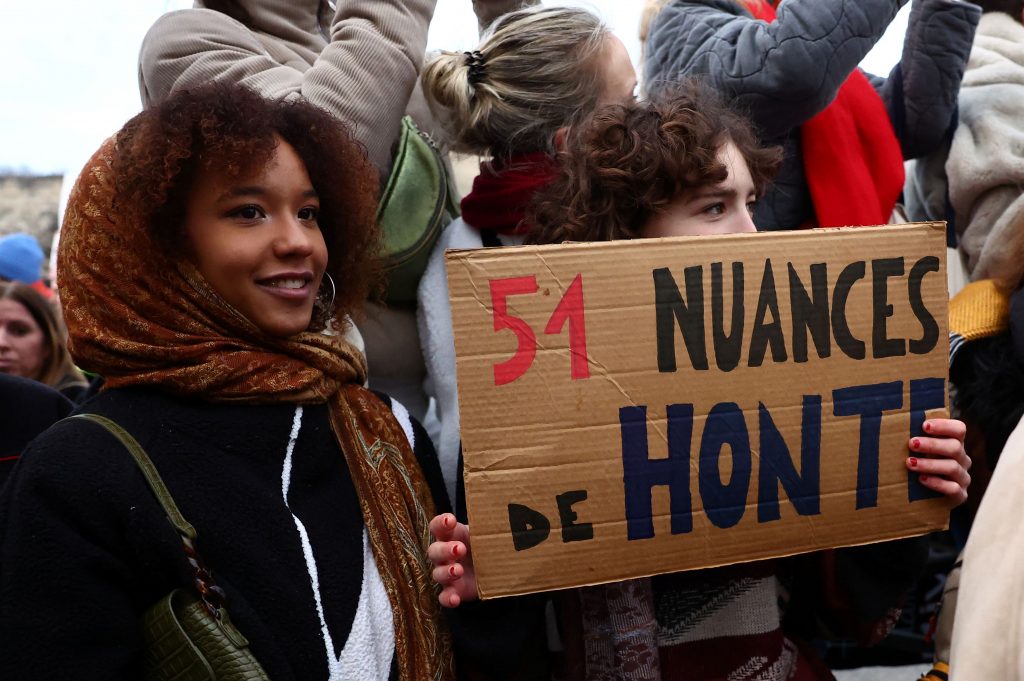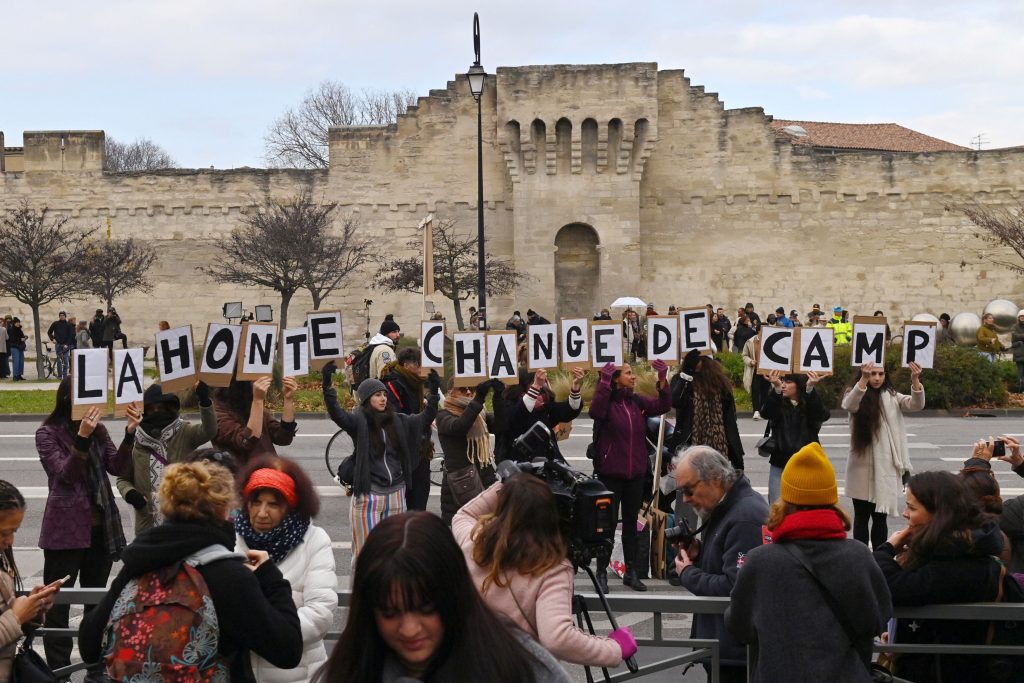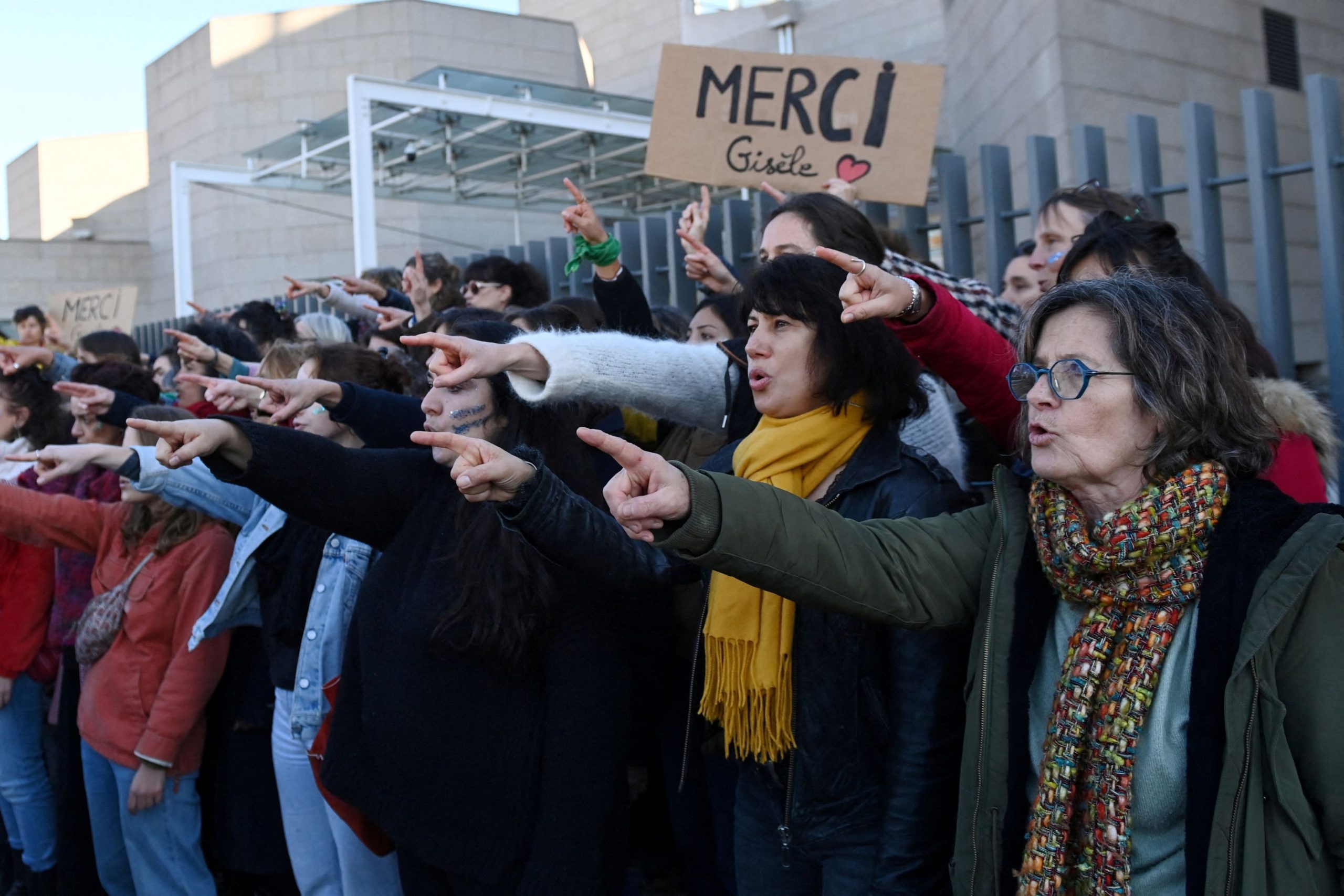PARIS— Jerome Vilela was convicted of raping Gisèle Pelicot on six occasions and sentenced to 13 years in prison, one of the longest jail terms handed out to the 51 men who were convicted this week of raping and sexually abusing the French retiree.
If he had done the same thing in the U.S., the 46-year-old would risk spending the rest of his life in prison. But under French law, he will have the possibility of serving only half of his sentence. Given that Vilela has already been in prison for three years, he could be out in less than four.

Frenchwoman Gisele Pelicot, the victim of a mass rape orchestrated by her then-husband Dominique Pelicot at their home in the southern French town of Mazan, leaves the courthouse surrounded by French police and journalists after the verdict in the trial for Dominique Pelicot and 50 co-accused, in Avignon, France, December 19, 2024. REUTERS/Manon Cruz REFILE – CORRECTING “THE VICTIM OF AN ALLEGED MASS RAPE” TO “THE VICTIM OF A MASS RAPE
The sentences handed down in one of the most consequential criminal cases in modern French history have drawn an angry response from activists who massed outside the court in Avignon and followed the case across France in support of Gisèle Pelicot, now 72. They were looking for sentences closer to the maximum allowed for rape under French law, 20 years, to send a firm message that the case marked a turning point in society’s fight against sexual violence.

Supporters of Frenchwoman Gisele Pelicot, the victim of an alleged mass rape orchestrated by her then-husband Dominique Pelicot at their home in the southern French town of Mazan, hold a placard as they gather in front of the courthouse after the verdict in the trial for Dominique Pelicot and 50 co-accused, in Avignon, France, December 19, 2024. The slogan reads “51 shades of shame”. REUTERS/Manon Cruz
“Shame to justice!” the crowd chanted outside the Avignon courtroom when news of the verdicts arrived.
Dominique Pelicot , the 72-year-old former husband of Gisèle Pelicot, received the maximum 20 years for raping his wife and participating in dozens of rapes committed by the other defendants over a decade. Those men, however, received sentences that were significantly more lenient than those sought by the prosecutors, including their request for 16 years in prison for Vilela. Six of the defendants walked free on Thursday because of time served.
The sentences also raised eyebrows among members of the Pelicot family.

Frenchwoman Gisele Pelicot, the victim of an alleged mass rape orchestrated by her then-husband Dominique Pelicot at their home in the southern French town of Mazan, arrives with her lawyers Stephane Babonneau and Antoine Camus to attend the verdict in the trial for Dominique Pelicot and 50 co-accused, at the courthouse in Avignon, France, December 19, 2024. REUTERS/Alexandre Dimou
“About the conviction of Dominique Pelicot, I’m satisfied because he got the maximum, 20 years,” said David Pelicot , Gisèle Pelicot’s oldest son. “I’m a bit more disappointed about what the other accused got…My brother Florian and my sister Caroline were like me, fairly surprised.”
Legal experts, however, say the decisions handed out by the judges reflect one of the main goals of the French justice system, which is to eventually reintroduce most defendants back into society. The sentence of Vilela, like most of the other defendants in the case, requires him to be monitored for six years by the court, including therapy and other measures.
“In the French penal code, sentences must punish but they must also rehabilitate,” said Audrey Darsonville , professor of criminal law at University Paris Nanterre. “Perhaps there is less of a purely punitive character that we see in the United States.”
In the U.S., courts can require the convicted to serve sentences consecutively. That means the sentence for each individual act of rape can be strung together, resulting in prison terms that run for decades. That is impossible under French law, said Darsonville. Convicts only serve the longest of their sentences even if they have committed multiple crimes.
France also doesn’t impose life sentences without the possibility of parole, except in very rare instances of the most heinous crimes such as terrorism or the killing of a child with torture. Salah Abdeslam , one of the Islamic State militants who killed 130 in the Paris terrorist attacks of November 2015, received such a sentence when he was convicted in 2022.
Among high-income nations, the U.S. is an outlier in imposing long prison sentences, according to the Council on Criminal Justice, a Washington, D.C.-based nonprofit. The U.S. holds 40% of all prisoners worldwide serving life sentences and 83% of prisoners sentenced to life without the possibility of parole, the group said in a 2022 report.
“The U.S. grapples with higher rates of homicide when compared with European countries but this does not fully explain its distinctive policies regarding long sentences,” the council said. “The U.S. imposes longer sentences compared to countries with substantially higher rates of violence.”
Even so, many in France found the sentences in the Pelicot case disturbingly light. The shortest was three years, for 69-year-old Joseph Cocco , who went to the Pelicot house on one occasion. He walked free on Thursday. The longest, except for Dominique Pelicot, was for Romain Vandevelde , 63, who performed sex acts on Gisèle Pelicot on six occasions knowing he was HIV positive. He received 15 years.

People hold placards as they gather in support of Frenchwoman Gisele Pelicot, the victim of an alleged mass rape orchestrated by her then-husband Dominique Pelicot at their home in the southern French town of Mazan, during the verdict in the trial for Dominique Pelicot and 50 co-accused, in front of the courthouse in Avignon, France, December 19, 2024. The slogan reads “Shame changes sides”. REUTERS/Alexandre Dimou
Vilela was one of the few defendants in the Pelicot case who admitted knowing that Dominique Pelicot was drugging his former wife. That and the number of times he went to the Pelicot house led to his relatively long sentence.
“I unfortunately came across a man on a website who proposed to have sex with his wife, whom he had drugged and was therefore unconscious and non-consenting,” Vilela wrote to his parents from jail, according to court documents. “Despite the immorality and the possible consequences, I strangely accepted.”
After Thursday’s verdict was read, Gisèle Pelicot herself was circumspect.
“Listen, I respect the decision of the court,” she said.

A banner which reads ” Thank you Gisele” hangs on the city wall as people gather in support of Frenchwoman Gisele Pelicot, the victim of an alleged mass rape orchestrated by her then-husband Dominique Pelicot at their home in the southern French town of Mazan, during the verdict in the trial for Dominique Pelicot and 50 co-accused, in front of the courthouse in Avignon, France, December 19, 2024. REUTERS/Alexandre Dimou
Write to Matthew Dalton at Matthew.Dalton@wsj.com



